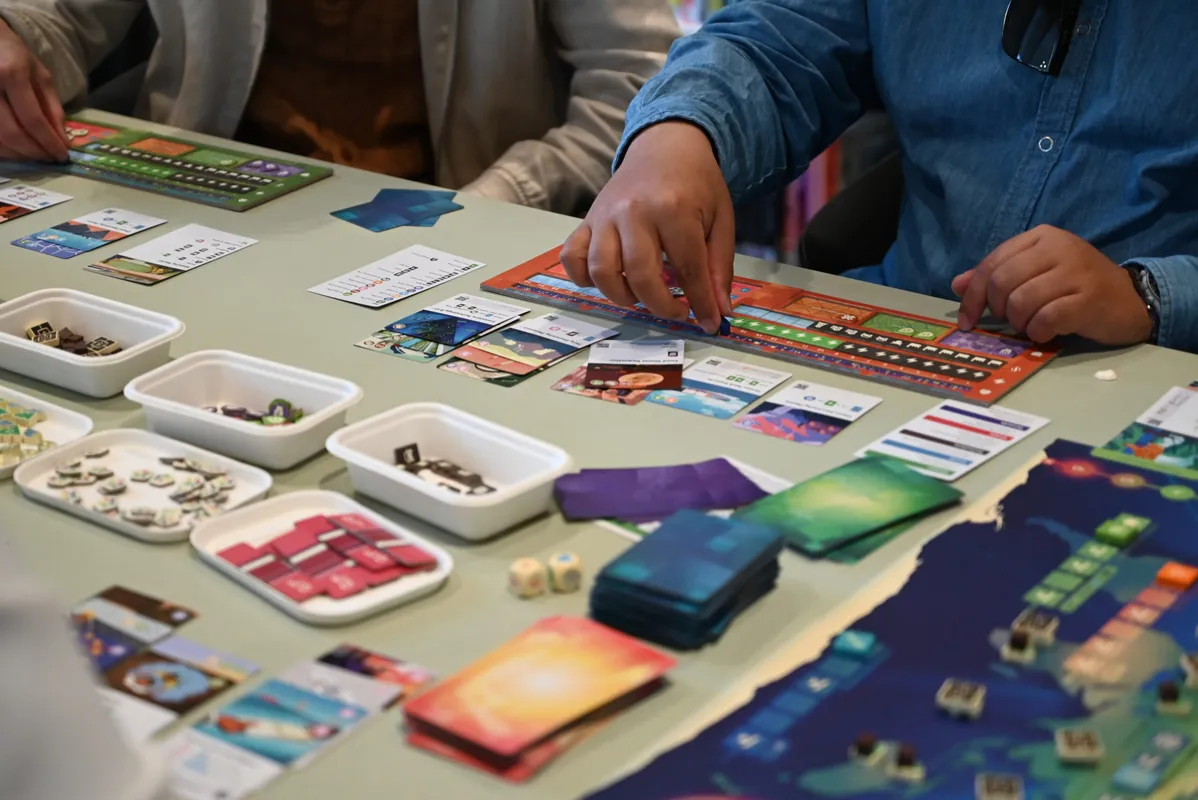Climate change adaptation is inherently about problem-solving—navigating disruptions, making decisions under uncertainty, and fostering resilience. Games, by their very nature, help us practice these skills in engaging, low-risk environments.
A recent study surveying 10,000 young people revealed that 84% felt at least moderate worry about climate change, with over 45% stating that these feelings negatively affected their daily life and functioning (Hickman et al. 2021). When faced with a challenge as vast as climate change, it’s easy to feel overwhelmed—paralysis often follows alarmist discourse, leaving people feeling powerless rather than empowered (Ereaut & Segnit 2006).
But what if climate adaptation could be approached differently? What if, instead of fear and helplessness, we harnessed creativity, collaboration, and even joy? This is where play comes in.
Play is often dismissed as frivolous, but research shows its immense value. It renews optimism, opens us up to new possibilities, and enhances adaptability and problem-solving skills (Brown 2009). Climate change adaptation is inherently about problem-solving—navigating disruptions, making decisions under uncertainty, and fostering resilience. Games, by their very nature, help us practice these skills in engaging, low-risk environments.
However, some critics argue that games may oversimplify climate challenges or fail to translate into real-world action. While this is a valid concern, research in serious gaming and experiential learning suggests that well-designed play-based interventions can enhance knowledge retention and decision-making skills (Gee, 2007). The key lies in ensuring that games are grounded in real-world data and encourage actionable takeaways.
The Climate Adaptation Play Network was created as a space for professionals to explore how play-based methods can drive climate resilience. Whether you’re a game designer, urban planner, resilience officer, or simply curious, this community is a hub for sharing ideas and collaborating on playful solutions to climate challenges.
Serious games, tabletop exercises, and interactive simulations have already been used to model climate risks, enhance community preparedness, and inform policy (Mayer et al., 2014). Play can make abstract threats tangible, allowing people to test strategies and build confidence in their ability to respond. More importantly, it fosters constructive hope—the belief that solutions exist, that people can create change, and that individual actions matter (Ojala 2015).

Why have this network if there’s Games for Change? While we collaborate with Games for Change events, our focus is specifically on how we adapt to a world where climate change is already a reality. This isn’t about doom and gloom—it’s an opportunity to explore solutions creatively and even have fun along the way.
As Jane McGonigal says in Imaginable: “The future belongs to the people who can imagine it, question it, and most importantly, play with it.” Our network exists to do just that—to experiment, to problem-solve, and to create playful approaches to a future shaped by climate change.
I’m currently designing Mildly Annoying: A Game of Climate Disruptions, a card-based game that explores how climate change affects daily life in frustrating and often absurd ways. Instead of focusing on catastrophic events, the game highlights modern inconveniences—heatwaves canceling holidays, power outages ruining freezer-stored food, and phone towers collapsing in strong winds. The goal? To demonstrate how climate disruptions are personal, pervasive, and require collective problem-solving.

There’s a lot happening in the world of climate adaptation play! Some key contributors include:
Climate adaptation isn’t just about technical solutions—it’s about people. And people learn, engage, and collaborate best when they feel empowered rather than overwhelmed. Play offers a unique approach to climate communication and action, making it easier to build resilience in communities, organizations, and policy spaces.
If you’re interested in exploring how play can enhance climate adaptation, join us in the Climate Adaptation Play Network on LinkedIn.
Let’s rethink how we tackle climate challenges—one game at a time.



By signing up you give permission for Hothousemag to contact you with updates. Your information is safe with us – for more information see our Privacy Policy
